THE annual celebration of South Asian Heritage Month explores the shared cultures and histories of the UK and South Asia, with a range of activities from film screenings and concerts to workshops, discussions and events bringing diverse communities together.
To mark the important month, being held in 2023 from Tuesday (18) until August 17, Eastern Eye looked back at the 1960s. It was a pioneering decade for British Asian music, which played a huge role in bridging the gap between the UK and the subcontinent. It helped lay the foundation for what we have today.
During the 1960s, the recently arrived first generation of migrants were largely alone, as they tried to make a new life. In Birmingham many Indians and Pakistanis gathered at an electrical goods shop owned by Muhammad Ayyub MBE, to discuss their problems and read letters from their respective motherlands. Ayyub had said: “There were no radio or TV programmes, no record shops, and no tape recorders to play music they were familiar with. People asked me for soundtracks of Indian films. So, I imported vinyl records from India. The first shipment arrived eight weeks later and sold like hotcakes.”
The massive demand for music and shipping of vinyl records taking so long led Ayyub towards founding the first British Asian record label in 1969, recording the first song in a studio and launching a path-breaking weekly BBC radio show playing that same music in 1971. His influential record label would go on to discover record-breaking talents like Malkit Singh, Ustad Nusrat Fateh Ali Khan, and Bally Sagoo, along with launching multiple important musical movements. But the starting point was those immigrants gathering in his Birmingham shop.
The BBC also realised that it needed to do something for the newly arrived South Asians and in 1965, set up an Immigrants’ Programmes Unit.
The publicly funded broadcaster launched a show called In Logon Se Miliye in 1965, which was hosted by Aley Hasan. It was then called Apna Hi Ghar Samajhye, and there was also a radio version. These early efforts evolved into the iconic show Nai Zindagi, Naya Jeevan, which was launched in 1968 and ran until 1982.
That show had interviews with big named superstars, but more importantly it provided the first meaningful international platform for South Asian music talent. The show would feature everyone from British Asian newcomers to music legends like Noor Jehan.
It is no secret that bhangra music played a big part in the evolution of British Asian culture. The first significant act in this genre to take pioneering steps in the game-changing decade was The Bhujhangy Group. Like many first generation singers Balbir and Dalbir Bhujhangy grew up in a village in India. After moving to Birmingham in 1964, the talented brothers set up a group that performed religious songs, which were performed at Sikh temples.
The following year their iconic group started singing folk music and writing songs based on their experiences. Then in the late 1960s they recorded their debut songs and became the first British group to record Punjabi music. Balbir recalled: “We travelled to Uxbridge studios to record this four-track EP with producers Sukhi and Gurnam in the late 1960s. We recorded live and made 100 copies of this 7" EP and then distributed it to all pubs with jukeboxes around the Midlands. Very quickly, we were a household name – The Bhujhangy Group.”
A whole generation of bhangra bands would follow in their footsteps in the following decades including the big three of Alaap, Heera and Apna Sangeet. The UK would eventually become the bhangra capital of the world, producing global stars, and influencing generations. A big starting point was two brothers having that vision to start up a group.
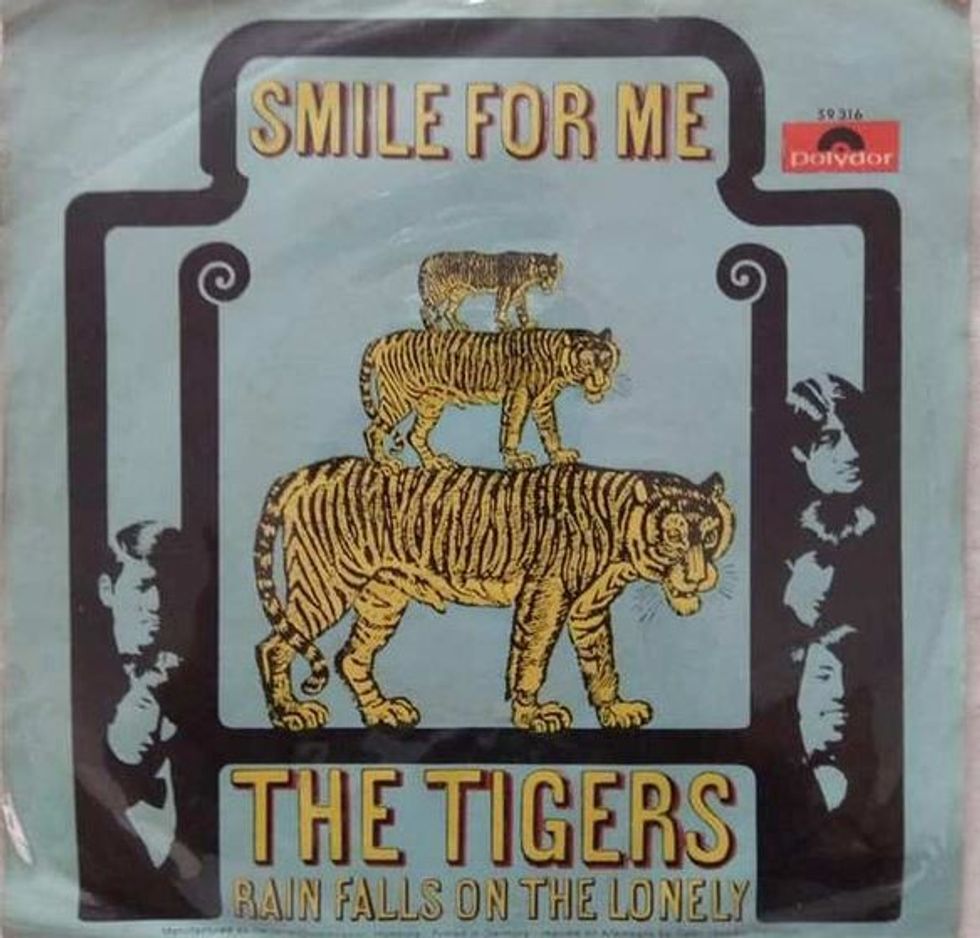
Around the same time. immigrants who had musical abilities would perform small shows, including at people’s homes. In the following decades the live South Asian music scene would thrive with sell-out arena concerts and artists, including qawwali legend Ustad Nusrat Fateh Ali Khan performing at major festivals like Womad. The trigger point was immigrants, who entertained one another with music from their motherlands.
Meanwhile, a young musician named Biddu left India for the UK in 1967, hitchhiking his way through the Middle East and earning money through busking. He had said: “I didn’t really know too much about England or anything – I’d just come here on the chance of meeting The Beatles and doing some music.”
In 1969, he scored his first big success with the song Smile For Me by famous Japanese band The Tigers. That would enable him to break ground for South Asians in the western mainstream with disco classics, like worldwide 1974 smash hit Kung Fu Fighting. Then in the 1980s, with the help of young British Pakistani teenager Nazia Hassan, he would kickstart the pop movement in the subcontinent with ground-breaking album Disco Deewane. Him hitch-hiking, while busking in the 1960s was the starting point of that special journey. Many including Cornershop, Naughty Boy, Zayn Malik, Charli XCX, MIA, and others followed him into the western mainstream.
The 1960s also had the legendary collaboration between British band the Beatles and Indian sitar maestro Pandit Ravi Shankar, which drew attention to Indian music internationally in a way not seen before. But it was the electrical goods shops, TV show for immigrants, a bhangra band set up by two brothers and a hitch-hiking musician, which opened doors for other South Asians, and their contribution should always be celebrated.
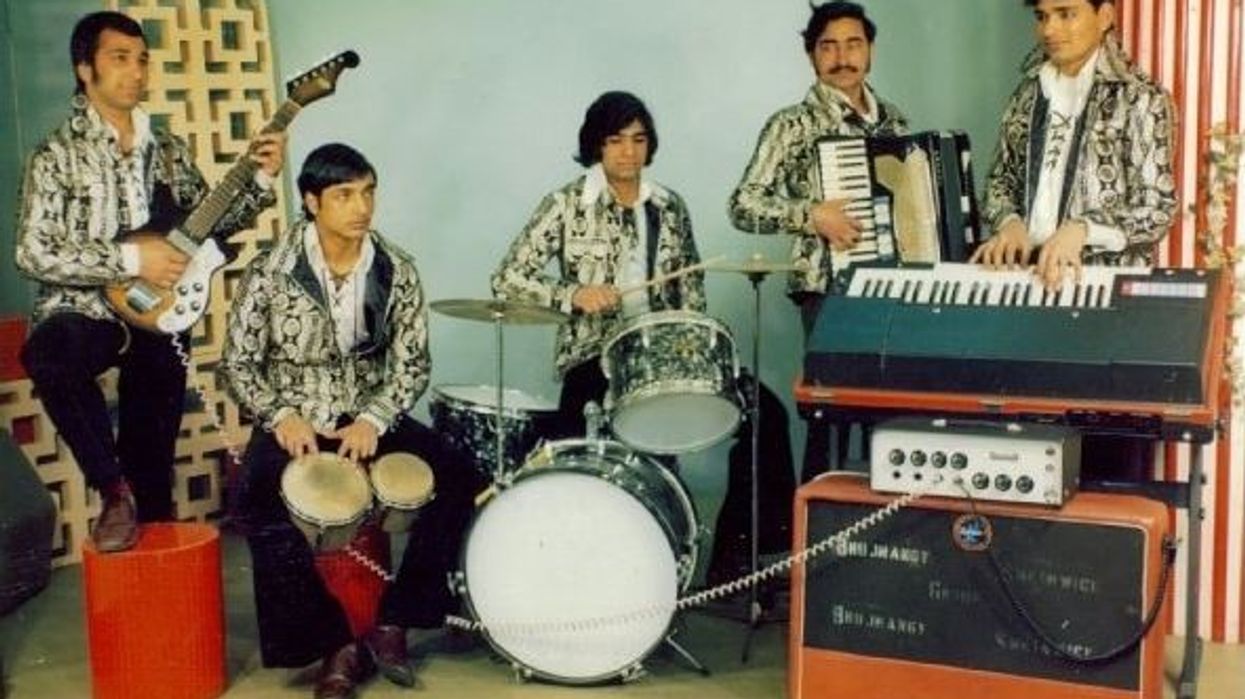
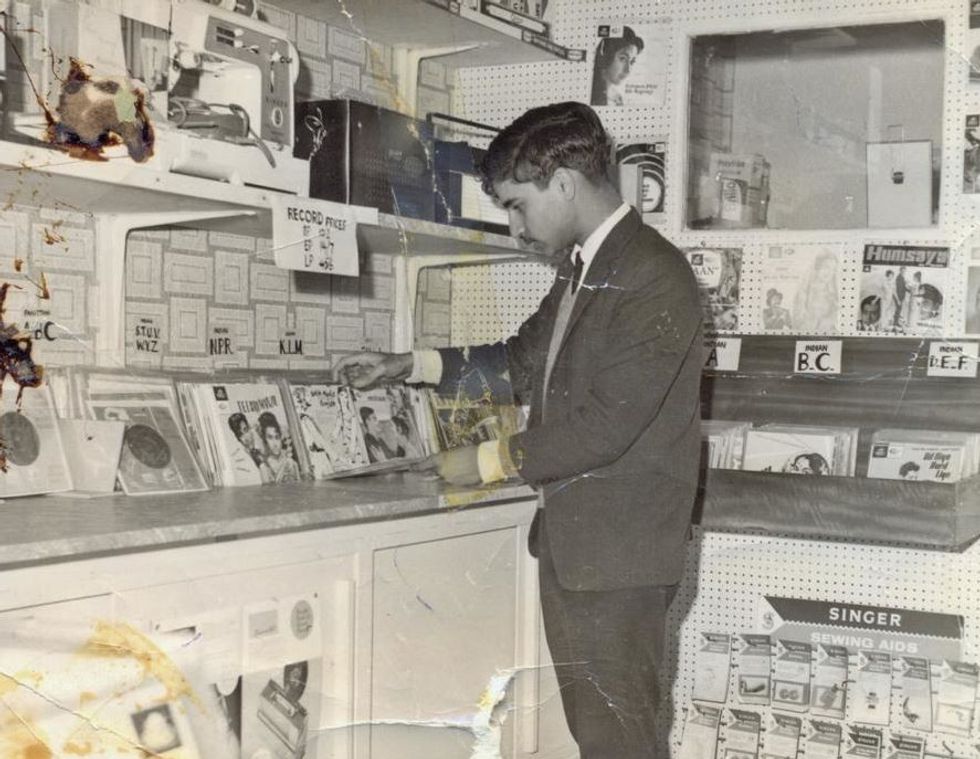




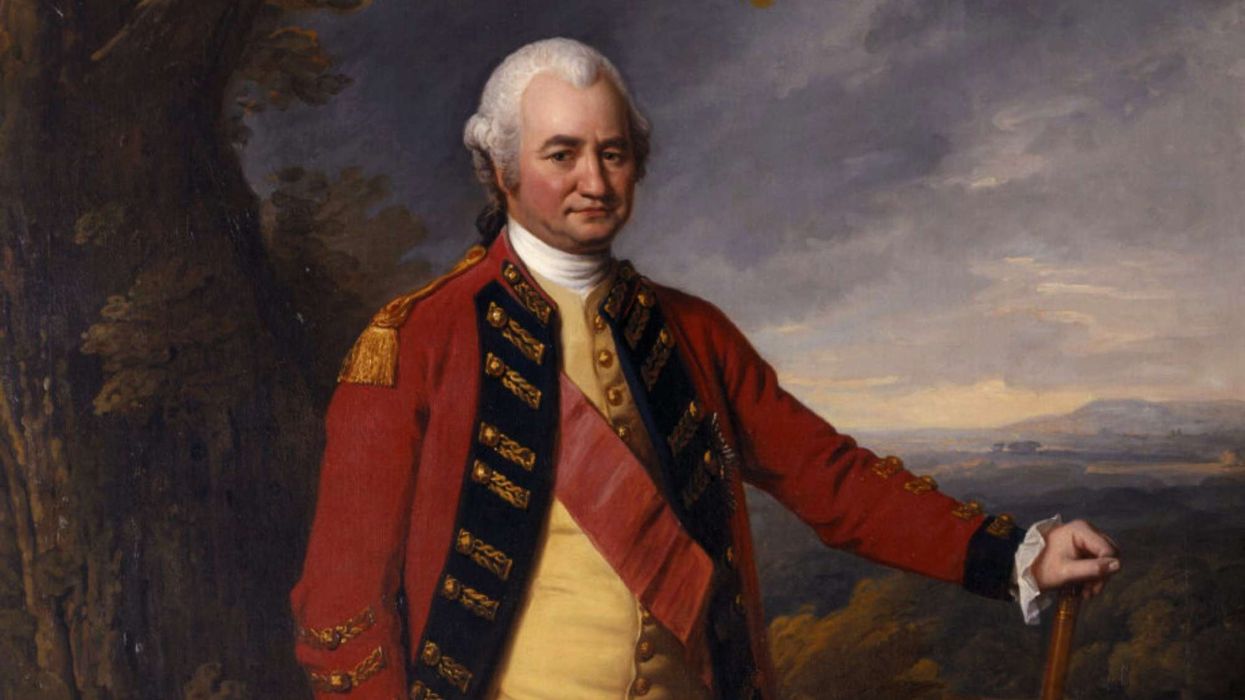
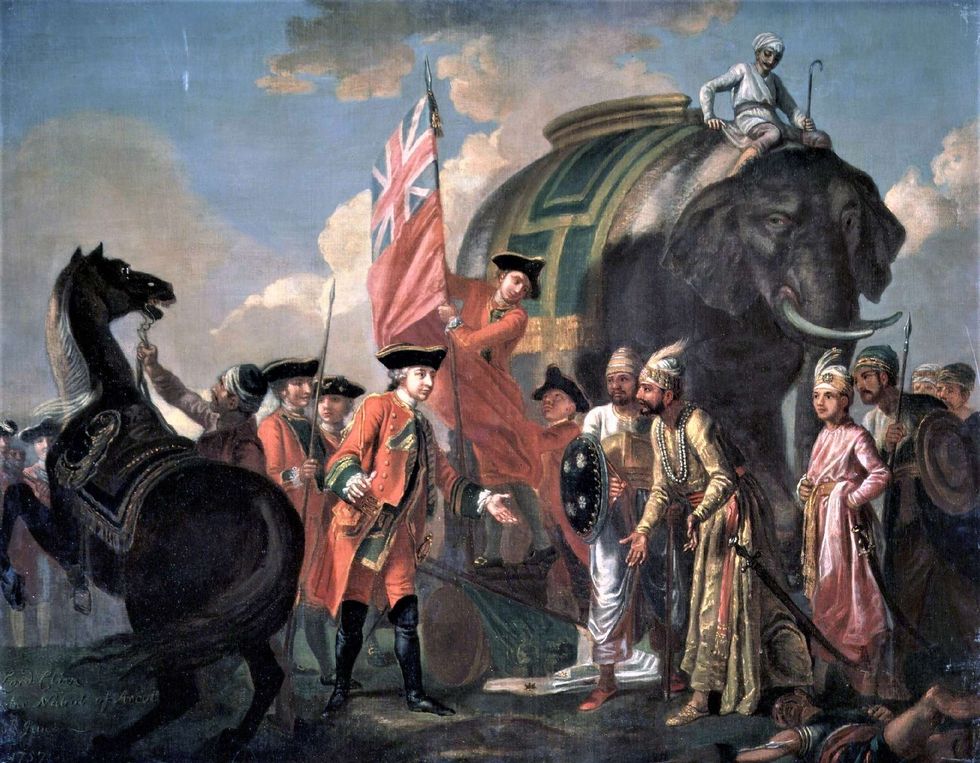 Clive meeting Mir Jafar after the Battle of Plassey 1757
Clive meeting Mir Jafar after the Battle of Plassey 1757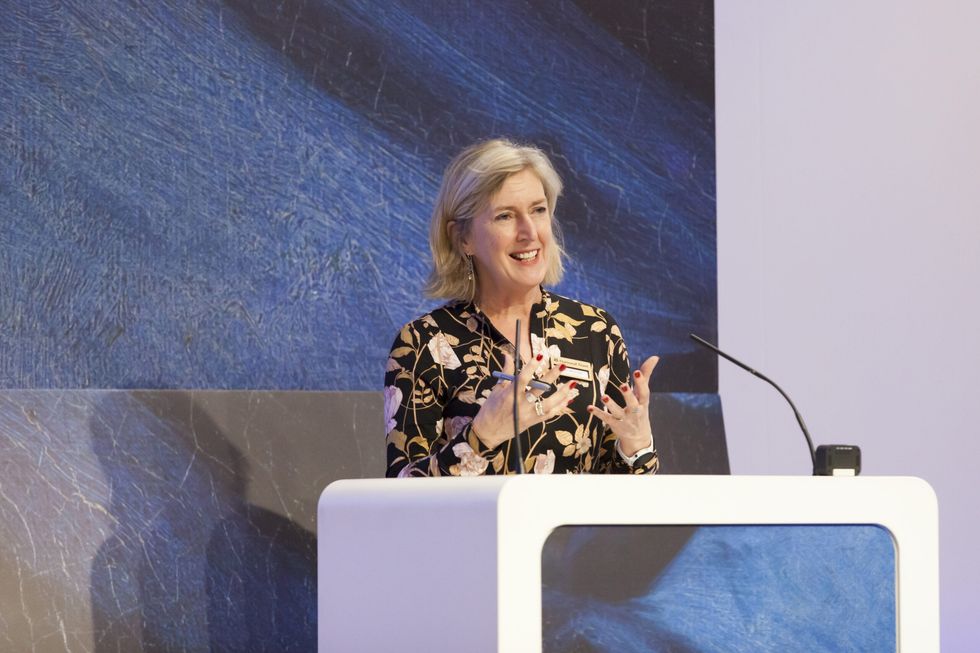 National Trust director general Hilary McGrady
National Trust director general Hilary McGrady 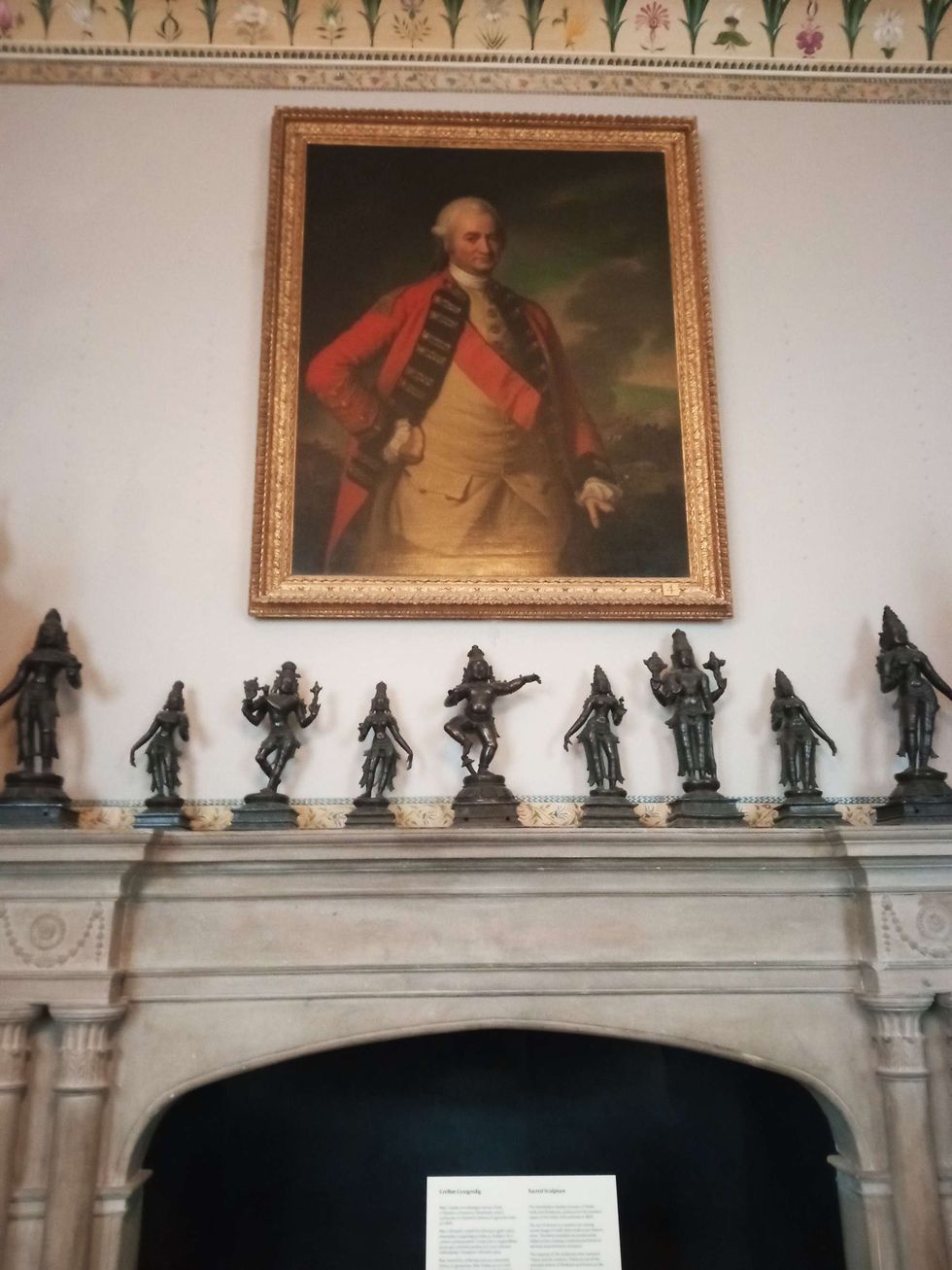 Powis Castle photo of four Clive dominates Hindu Gods
Powis Castle photo of four Clive dominates Hindu Gods 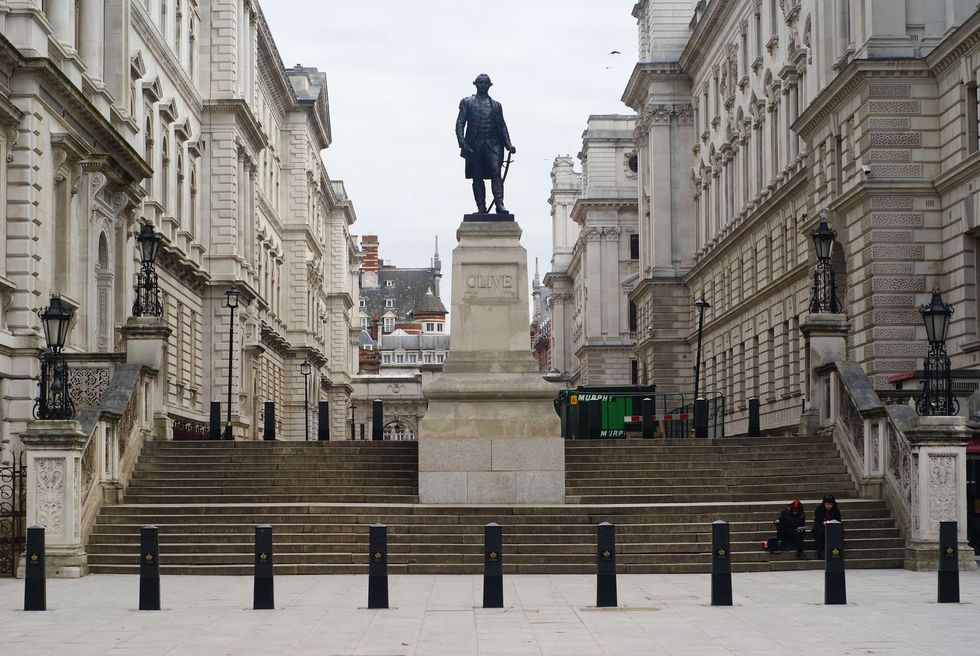 Clive of India at Foreign Office entrance
Clive of India at Foreign Office entrance 





